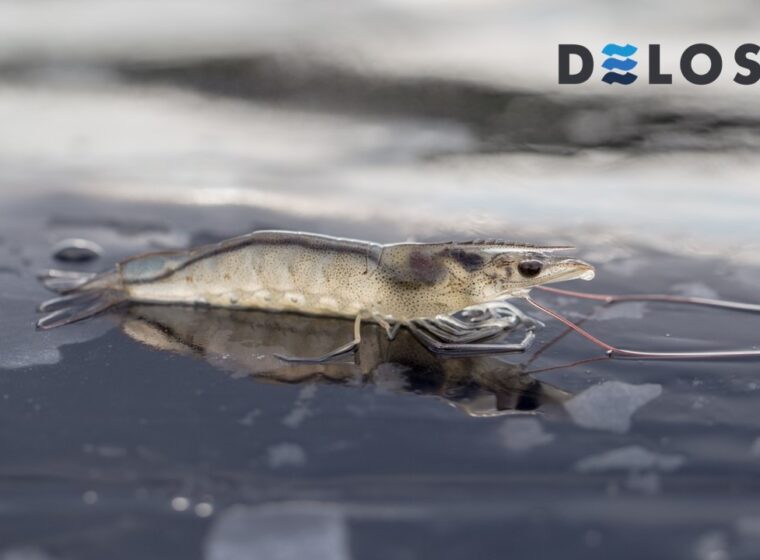Taking care of shrimp ponds during the rainy season is the biggest challenge for farmers during cultivation. High rainfall is very risky for ponds because it can disrupt the balance of water parameters, directly impacting the health and productivity of shrimp ponds.
To ensure the long-term sustainability and profitability of shrimp farms, farmers must have a solid understanding of best practices for managing shrimp ponds during the rainy season.
In this article, we will discuss some tips and strategies on taking care of shrimp shrimp ponds during the rainy season so farmers can minimize risks and maximize aquaculture productivity.
Also Read: 7 Types of Shrimp Diseases that Often Occur During Cultivation
The Impact of the Rainy Season on Vannamei Shrimp Cultivation
The water quality parameter is the primary indicator of the success of vannamei shrimp cultivation. Optimal water quality can make vannamei shrimp farming a great success. On the other hand, poor and drastically changing water quality can cause vannamei shrimp to become stressed and susceptible to disease.
Following are some of the impacts of the rainy season on vannamei shrimp cultivation:
1. Temperature Changes
When it rains, pond water temperatures can drop to 2-3°C. Low temperatures make water conditions less than optimal, impacting metabolic rates and making shrimp activity slower, and they tend to gather at the bottom of the pond.
Not only has an impact on shrimp, but the activity of decomposing bacteria also decreases when the pond temperature is not in optimal conditions. This causes the accumulation of organic matter present in the ponds
2. Decrease in pH
Rain pH is usually around pH 6.5-7.0. Rain will directly lower the pH by 0.3-1.5 shortly.
3. Changes in Salinity and Alkalinity.
Rain can cause pond water to become thinner, so the salinity and alkalinity numbers also go down.
When the salinity drops, the shrimp will molt. However, the limited availability of minerals can lead to disease infection and cannibalism among shrimp.
4. Plankton Population and Organic Matter Accumulation
The impact of the rainy season on vannamei shrimp cultivation is the death of phytoplankton due to changes in water quality parameters. The dead phytoplankton will also accumulate as organic matter at the pond’s bottom.
The rainy season also makes the shrimp’s diet abnormal and tends to be lower. Therefore, the remaining feed will be more, and the processing is also slower and causing the accumulation of organic matter to increase.
5. Decreased Shrimp Immunity Level
Changes in water quality parameters due to rainwater can cause the ecosystem where shrimp live to become unstable. In addition, sudden changes can cause shrimp to become stressed, and experience decreased immunity, making them susceptible to disease infections.
Also Read: 5 Tips on Managing Vannamei Shrimp Ponds
Tips for Taking Care of Shrimp Ponds During the Rainy Season
1. Proper Pond Preparation
Preparing a proper pond is very important to maintain the health of the shrimp pond during the rainy season. Shrimp farmers must ensure that their ponds are cleaned properly and free of waste and impurities before the rainy season arrives.
In addition, it is necessary to construct suitable drainage channels and install pumps to drain the sewage to control the water level.
2. Maintaining Optimal Water Quality
Water quality is essential for successful cultivation, especially when the rainy season arrives. Excessive rainfall can cause a decrease in optimal conditions for pond water quality parameters.
Therefore, farmers must continue to monitor water quality regularly and take appropriate action when the rainy season comes, for example, by adding an aerator, adjusting the pH and salinity levels, reducing the frequency of feeding, and maintaining optimal water conditions.
3. Disease Management
Tips for taking care of shrimp ponds during the next rainy season are good disease management. During the rainy season, the growth of microorganisms, including bacteria and viruses, increases. This can cause shrimp to be susceptible to disease.
Farmers must take preventive measures, such as disinfecting ponds and equipment, implementing good hygiene and biosecurity protocols, and always monitoring for signs of shrimp disease.
4. Adjust Feeding
Feed management is an important aspect that must be considered when caring for shrimp ponds during the rainy season, where farmers must adjust their feeding schedule based on weather conditions and pond water quality.
Overfeeding can lead to poor water quality and increase the risk of disease. While giving less feed can inhibit the growth of shrimp.
In addition, make sure the feed given is of high quality and free from pathogenic contamination.
5. Always Monitor Weather Conditions
The last tip on taking care of shrimp ponds during rainy season is always to monitor weather conditions. Rainfall sometimes cannot be predicted precisely and accurately, so farmers must prepare what actions to take when it rains.
Some things that can be done include closing the pond and reducing the feed. In addition, always be alert for signs of flooding that can cause water quality problems and damage pond infrastructure.
Also Read: 5 Tips for Accelerating Vannamei Shrimp Growth When Cultivating
Vannamei Shrimp Cultivation More Productive with DELOS!
Maintaining and taking care of a shrimp pond during the rainy season can be a big challenge and a high risk. This is because rainwater directly affects the water quality parameters of ponds where vannamei shrimp live.
Therefore, farmers must make special preparations before the rainy season arrives. So, for those of you who want to start vannamei shrimp farming or increase your shrimp ponds’ productivity, DELOS is the right choice.
DELOS is the best science, technology, and operational management-based aqua-tech company that can help you increase the productivity of your vannamei shrimp farming.
DELOS Farm Management is also integrated with the AquaHero application, making it easier for you to monitor the condition of the shrimp in the pond just through the gadget every day.
To join the DELOS ecosystem, contact contact@delosaqua.com or submit via the contact column on our website, www.delosaqua.com. Vannamei shrimp farming is more productive with DELOS!




